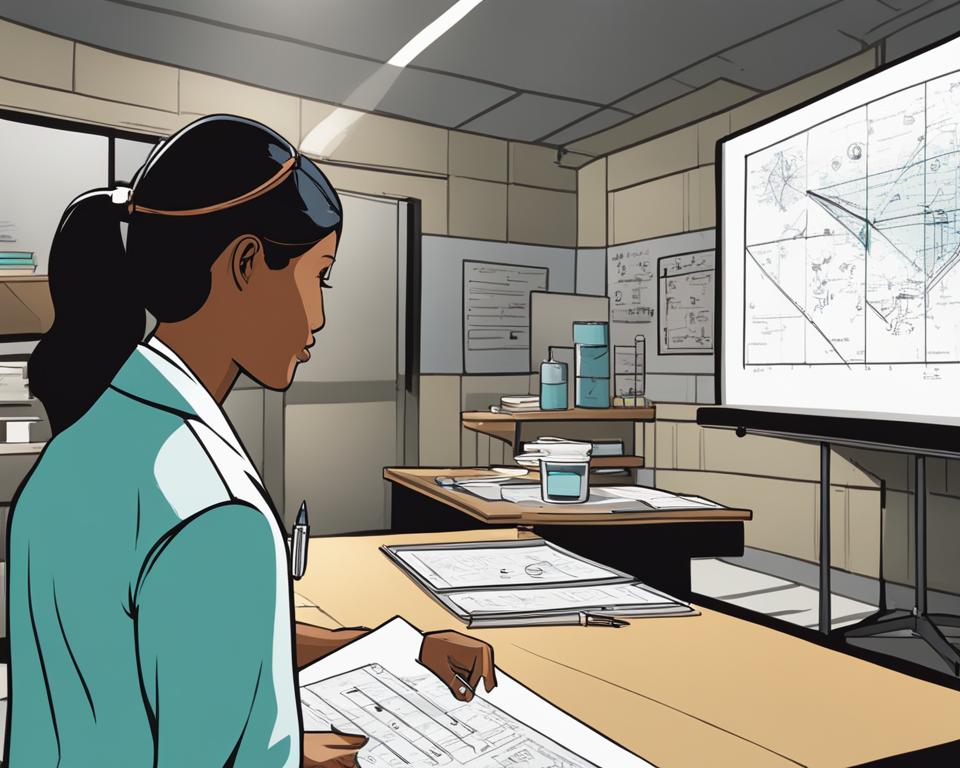Ethical and Spiritual Decision Making in Healthcare Comprehensive Nursing Paper Example
Christian Spirituality Perspectives and Postmodern Relativism in Healthcare
Christian beliefs and views on spirituality and ethics impact the health care system. Christians use the Bible as their primary reference and guide in understanding God’s perception of sickness, death, and suffering (Andrews, Watson, Chen & Morris, 2017). God is the creator of everything and has authority over every aspect of life. Christians believe that God still loves them despite their illnesses, suffering, and death. They have faith in God’s power to heal and restore wellness. Most Christians perceive sickness and suffering as trials on their faith in God. This faith sometimes makes other Christians reluctant to seek treatment based on scientific procedures and medicines. They believe that God has the power to heal, and relying on scientific medicine and other postmodern healing procedures is showing little faith. There is the notion, if something is not right, then it is wrong, which makes it hard to modify some Christian practices. However, Christianity is integrated into healthcare deeply since many healthcare providers apply Christian principles when handling patients. These principles define healthcare ethics and make nurse-patient interaction comfortable and based on trust.(Ethical and Spiritual Decision Making in Healthcare Comprehensive Nursing Paper Example)

Christian beliefs and practices like praying and creating a religious environment to enhance healing impact spirituality in healthcare. The spiritual commitment provides a positive outlook of the situation, encouraging patients to heal and live a quality life again. Christians develop compassion while caring for others, which is also required for nurses. The Bible requires Christians to care for the sick and the suffering. Churches like the Catholic Church have many health care institutions around the world. Christians believe that faith without action is dead. They consider health care as a ministry that seeks to serve God. People should have faith in God’s healing power which is manifested through the doctors’ work. Postmodernism is a contrast to Christian doctrines and involves subjective reality. It has a centrality on reason and absolute truth (Choi, 2016). For instance, if people get ill, they only need to seek medical attention and take medicine to heal. This concept attempts to weaken religious institutions that believe in Higher Power and strengthen individualized perspectives in healthcare.(Ethical and Spiritual Decision Making in Healthcare Comprehensive Nursing Paper Example)
Scientism and Main Arguments against It
Scientism involves valuing natural science highly compared to other concepts like religion, cultures, and human identities. Scientism primarily relies on scientific knowledge and understanding to clarify everything that impacts human existence (Sorell, 2013). It perceives other views and understanding of the world as weaker and unjustifiable. People with this belief work to enhance scientific ideas, procedures, and practices on things that matter to human beings. Scientism promotes scientific principles as the only explanations and determinations of normative rules. Reality is reduced to only that is known through scientific means. According to this ideology, religious and cultural beliefs and principles are not enough to determine right and wrong or clarify natural environments since they are purely about faith in a Higher Being. Factual scientific information is used to explain what is known to humans and why things are the way they are. Scientists believe religious and cultural discourses are bankrupt and not exhaustive in explaining nature and human existence.(Ethical and Spiritual Decision Making in Healthcare Comprehensive Nursing Paper Example)
There are several arguments against scientism, such as that science cannot stand for itself and often borrows information from other branches. Scientists require other discourses and fields of metaphysics to clarify natural concepts. Most scientific principles and explanations contain non-science concepts such as perception, intuition, and memory (Peels, 2018). Many religious and cultural concepts enhance natural science that scientists value highly. The “Ship of Theseus” is also an argument against scientism. This concept is philosophical and challenges individual reasoning and personalized perceptions about events and objects. Science is entirely based on human intelligence. A particular definition can be perceived differently by various individuals. The theory asks whether a ship would still be the same when all of its components are replaced or considered new. The concept also argues if the ship would fundamentally remain the same if the parts are removed and rejoined in the future (Nolan, 2015). There would be varying answers for these questions, all of which are right depending on individualized understandings. The theory attempts to show human identity and how consciousness and perception of reality affect how different people view the world. Therefore, science is not adequate to clarify everything, especially those beyond human description, understanding, knowledge, prediction. (Ethical and Spiritual Decision Making in Healthcare Comprehensive Nursing Paper Example)
Worldview Questions
Ultimate Reality
Ultimate reality involves supreme, final, and absolute power. The concept is subjective, and people have varying perceptions and beliefs of what is final to them, and nothing exists beyond the fundamental power. Atheists and religious people have a different understanding of ultimate reality. Christians and other religions believe in a Higher Being who exists beyond human understanding. Atheists consider human beings as the highest moral determinants, and therefore they are the ultimate reality. It is hard to dispute any of these beliefs since people are entitled to embrace what they view as the ultimate reality. I believe there are so many things human beings cannot explain or clarify their existence. Therefore, there must be a higher power that puts things the way they are. The belief in a spiritual supreme goes beyond the existence of matter and the nature of occurrence, which scientists base almost all their explanations on. The Supreme Being is why everything exists and has the final verdict about the end of everything. The belief in a higher being has existed for a long time, and it is hard for scientific evidence to disregard (Snooks, 2016). (Ethical and Spiritual Decision Making in Healthcare Comprehensive Nursing Paper Example)
The Nature of the Universe
Space, time, and matter make the universe as far as human understanding (Kohut & Saris, 2011). Ultimate reality associates with the existence of the universe. Scientists have their theories about how the universe came to being. Religious people believe that a Supreme Being designed the universe. The structure of the universe impacts the existence of people and other organisms. Energy is a fundamental component of the universe that affects life. Most things about the universe are beyond people’s understandings. Therefore, people cannot entirely explain their constituents. This lack of adequate comprehension of the universe creates diverse explanations and comprehension of it. I believe that a Higher Being designed the universe and all the life in it.(Ethical and Spiritual Decision Making in Healthcare Comprehensive Nursing Paper Example)
Human Beings
Human beings are created creatively, and their continuity is through reproduction, which is the process by which a male sperm fertilizes a female egg. Human beings are more intellectually capable compared to other organisms. The way people live indicates dominations over other creations. God designed human beings in His image and likeness and gave them dominion over other living things. Humans are to care for the earth, which provides them with food. Humans are a unique creation, and it seems that almost everything in the world is associated with human existence. People’s reasoning and intellectual power enable them to survive difficult situations. (Ethical and Spiritual Decision Making in Healthcare Comprehensive Nursing Paper Example)
Knowledge
Knowledge refers to anything that is known to us, acquired through education and life experience. Knowledge is our comprehension ability of what is around us. People are intellectually able to observe things, formulate ideas, create an understanding, and make informed decisions. For example, navigating through a forest relies on an individual’s knowledge of the area gained through learning or previous visiting. Knowledge transfer from generation to generation is vital for survival and maintaining history. Knowledge has no limit, and it can be simple or complex. Human beings begin acquiring knowledge in the womb, and after birth, they learn how to eat, crawl, talk, and walk. People have varying perceptions of knowledge sources and the nature of human intelligence. Atheists believe in human senses as the only fundamental processes of knowledge acquisition. However, this reasoning does not cover morality and ethics. Christians believe that intelligence is God-given, and humans use it to build knowledge (Moreland & Craig, 2017). People can reason intelligently as they were created in God’s image and likeness.(Ethical and Spiritual Decision Making in Healthcare Comprehensive Nursing Paper Example)
Basis of Ethics
Ethics affects human interactions as it defines what is right or wrong. The human institutions and justice systems provide consequences of violations of ethical codes. Therefore, people can choose to remain out of trouble by doing what is right. The Bible provides that God created the world and human beings purely, but they recognized right from wrong after disobedience. Since then, it has been a personal choice of action. The Bible teachings include a moral judgment that encourages people to remain on the right (Alexander, 2019). Many institutions, including the healthcare systems, have ethical and moral conducts that they expect practitioners to adhere to, ensuring workplace harmony. Ethics and morality vary depending on worldviews.(Ethical and Spiritual Decision Making in Healthcare Comprehensive Nursing Paper Example)
Purpose of Existence
I believe that everyone has a purpose for why they exist. People should live passionately and in harmony with others. God created everyone to ensure the continuity of life but also to impact the world positively. People have varying capabilities, strengths, and weaknesses. Therefore, everyone has a unique purpose for existence. People should help and care for others. Human beings should coexist happily, where everyone respects others and the differences between them. Life is sacred and should be honored and protected.(Ethical and Spiritual Decision Making in Healthcare Comprehensive Nursing Paper Example)

References
Alexander, A. B. (2019). Christianity and Ethics. BoD–Books on Demand.(Ethical and Spiritual Decision Making in Healthcare Comprehensive Nursing Paper Example)
Andrews, B., Watson, P. J., Chen, Z. J., & Morris, R. J. (2017). Postmodernism, positive psychology, and post-traumatic growth within a Christian ideological surround. The Journal of Positive Psychology, 12(5), 489-500.(Ethical and Spiritual Decision Making in Healthcare Comprehensive Nursing Paper Example)
Choi, J. (2016). Pluralism, relativism, and postmodernism in the healthcare chaplaincy and the evangelical chaplain (Doctoral dissertation, Biola University).(Ethical and Spiritual Decision Making in Healthcare Comprehensive Nursing Paper Example)
Kohut, P., & Saris, M. (2011). The Nature of the Universe.(Ethical and Spiritual Decision Making in Healthcare Comprehensive Nursing Paper Example)
Moreland, J. P., & Craig, W. L. (2017). Philosophical Foundations for a Christian worldview. InterVarsity Press.(Ethical and Spiritual Decision Making in Healthcare Comprehensive Nursing Paper Example)
Nolan, D. (2015). The a posteriori armchair. Australasian Journal of Philosophy, 93(2), 211-231.(Ethical and Spiritual Decision Making in Healthcare Comprehensive Nursing Paper Example)
Peels, R. (2018). The Fundamental Argument against Scientism. Science Unlimited? The Challenges of Scientism. University of Chicago Press.(Ethical and Spiritual Decision Making in Healthcare Comprehensive Nursing Paper Example)
Snooks, G. D. (2016). Ultimate Reality and its Dissidents. Canberra: IGDS.
Sorell, T. (2013). Scientism: Philosophy and the infatuation with science. Routledge. (Ethical and Spiritual Decision Making in Healthcare Comprehensive Nursing Paper Example)
https://www.ncbi.nlm.nih.gov/

